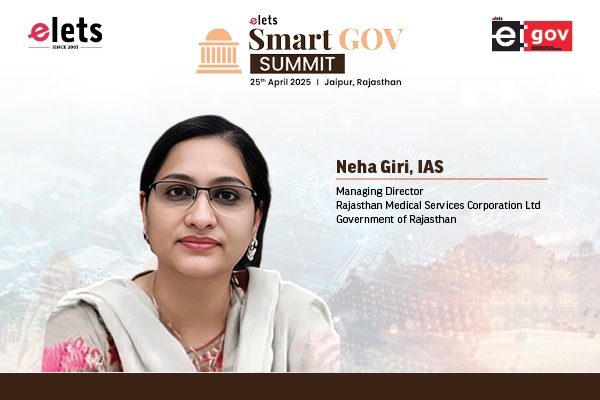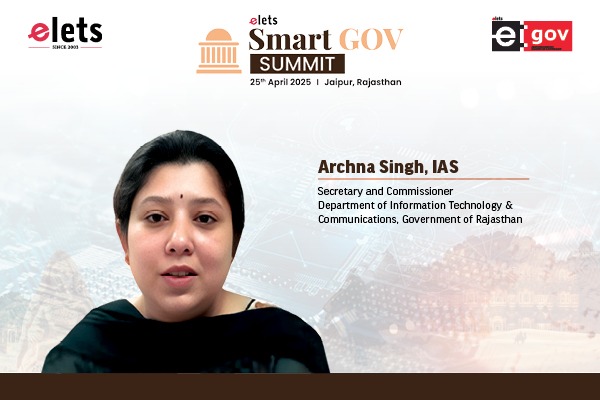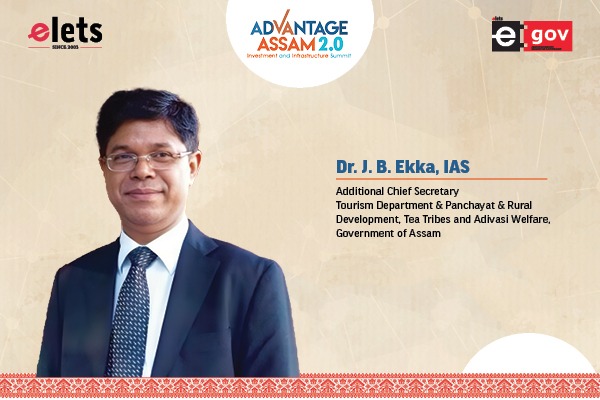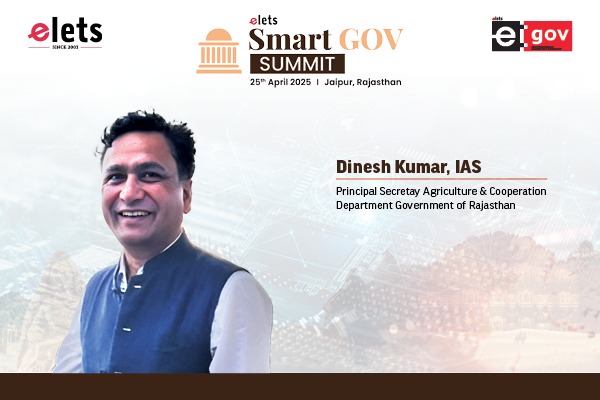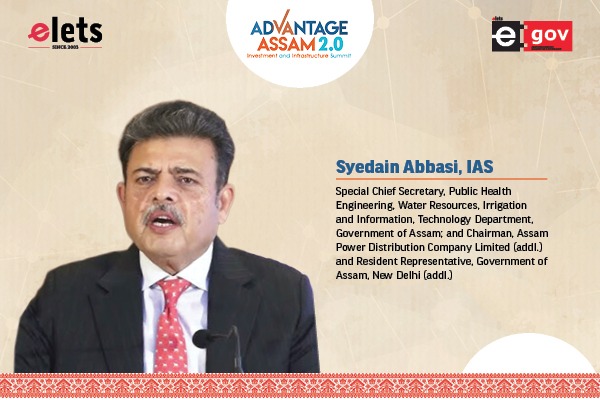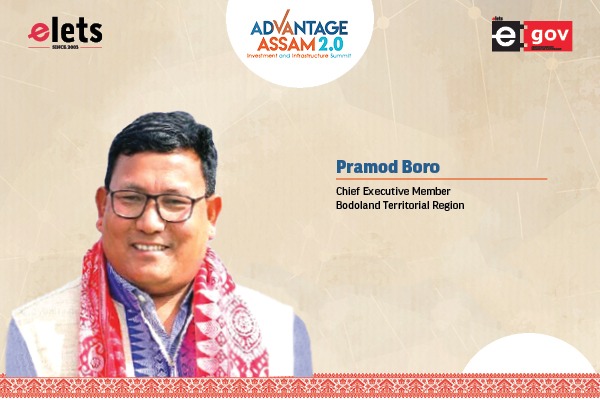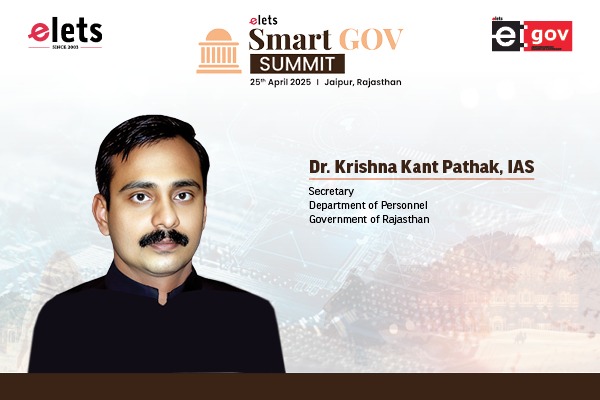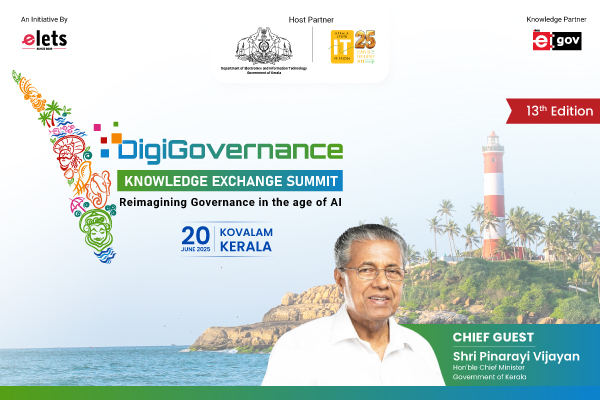
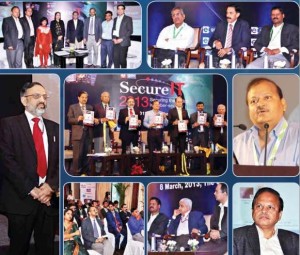 The 4th SecureIT 2013, the National Conference on ICT in Public Safety, Security and Disaster Management, took place at The Oberoi, New Delhi, on March 8, 2013. The conference was presented by eGov Magazine and jointly organised by Elets Technomedia Pvt Ltd and Centre for Science, Development and Media Studies (CSDMS).
The 4th SecureIT 2013, the National Conference on ICT in Public Safety, Security and Disaster Management, took place at The Oberoi, New Delhi, on March 8, 2013. The conference was presented by eGov Magazine and jointly organised by Elets Technomedia Pvt Ltd and Centre for Science, Development and Media Studies (CSDMS).
The SecureIT 2013 saw healthy debate on new technology applications and services that are already being or will be deployed in future to improve national security and moderate the aftermath of natural and manmade disasters. There were discussions on critical issues such as threat of cyber terrorism, data security, security against malware and use of ICT in border security.
National Security is a vast subject, but the SecureIT 2013 did manage to bring to light some of the most innovative ideas for national security and effective disaster management.
| The concept of state has originated from security because people want to have security. In due course of time that concept became the concept of state and kingdom. There are three type of security – physical security, security in the financial wealth and the intellectual property. In physical security each and every person should be well protected against all kinds of problems and aggression. Secondly, there is the aspect of security in the field of finances; this means that each and every person should be able to secure his or her wealth, whether it is in digital form or in physical form. And the intellectual property. We have to ensure that intellectual property is also secured. In all these three areas ICT can play a very important role. We got to create large number of awareness among people regarding cyber security. If we want to grow, the citizens of that society must have the sense of security. Today ICT is playing a vital role in creation of security systems being used around the world. We have to try to come with a mechanism that will ensure that all human beings are secured. In case of terrorism and anti-social elements, we can make use of digital cameras, we can make use of UAVs. In all these systems ICT can play a very very important role. The MHA and lot of other departments and organisations are working on this area and if we can create a collaborative platform where academia, industry, bureaucracy and the implementing agencies get together, we may find solutions to many of these problems. |
Shankar Agarwal Additional secretary, Ministry of Defence, Government of india 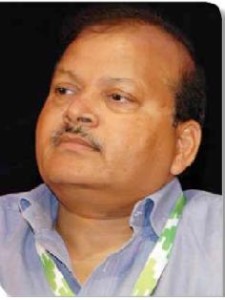 |

| Rajiv Gauba Additional secretary, DeitY, Ministry of Communications & IT, GOI  |
The nature of external threat has changed over the years. The security threat due to cyber aspects have become far more important as compared to the physical aspects. We have to take the new technological developments into account and accordingly forumate our strategies. I think there is need for much greater awareness, consciousness and preparedness in our security framework. This is true on a global scale. Governments are starting to become aware of the threats that emanate from cyber verticals. In order to safeguard our national interests we have to prepare ourselves fully for meeting new challenges in the cyberspace. I think there is need for much greater awareness, consciousness and preparedness at all levels – at the operational level, strategic level and policy level. There needs to be awareness about the implications of cyber security, how it is transforming the nature of warfare, the nature of threats – internal and external. In February 2013, the European Union issued Comprehensive New Cyber Security Directives, which mandate all its member countries to put in place new and comprehensive cyber security measures. India too needs to update its systems for meeting the cyber security threats. |

 |
Arun Chaudhary Director General,Sashastra Seema Bal By 2001 and 2002 we found that most of the criminal elements and most of the terrorists are making use of the internet, which we could not follow at that point of time. technological preparedness can do more for securing the nation than our physical presence at the borders. We have now started taking a serious look at the issues of cyber security for securing the nation on this new frontier. |

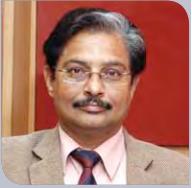 |
Dr Ashwini Kumar Sharma, Managing Director, NIELIT Cyber-crimes are new class of crimes. the government of india is planning that services have to be delivered at the doorstep of the citizens. it has to be ensured that it is done in a transparent way. Now we have to go for a system where we can go for periodic or non-periodic survey of making a system secure. |

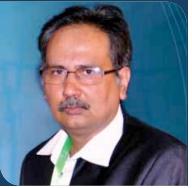 |
Alok Tripathi, Joint- Director, NIELIT Capacity building in it security and cyber crime and forensic is quite different from the traditional it environment. For traditional it environment, we need it infrastructure, we require people to be trained, we require software and tools and then the trainer has to train the people. |
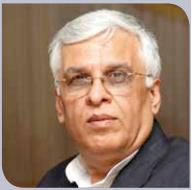 |
A K Sharma, Director, Delhi Fire service Saving life in a blazing fire situation is a tedious task. technology can make the work of firefighters much safer. Fire services must utilise the latest technology in the field. GPs and Gis can be put effectively in our day-to-day activities |
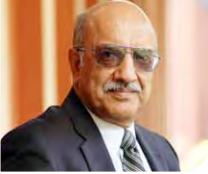 |
Maj Gen Dhruv C Katoch,SM, VSM (Retd), Director, Centre for Land Warfare studies (CLAWs) When you monitor everybody, you and me are also getting monitored and then we come to the privacy issues. We come to the question of who is going to monitor the people who are monitoring us? Because so long as the crooks are doing it, we have the police to sort them out. And when look at privacy issues i think these issues are of very serious concern. it involves human rights. |
 |
Dr Govind, Senior Director, DeitY, Government of India and CEO, National internet Exchange of india (NIXI) Security is never perfect. the matter is how do we secure our things with available technologies. there will always be a next generation technology, more powerful, more costly. Privacy and security comes at the cost of the other. these are the huge challenges that we must address in the coming years. |
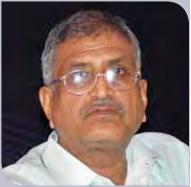 |
Dr Hanuman Prasad Shukla, Director, National institute of Electronics and information technology (NIELIT)-Gorakhpur We need to implement innovative strategies for safeguard the nation. We have to out-think the attacker and predict his next step. |
 |
Col KPM Das, Vice President, National security solutions, Cisco systems The proposition here is that while the systems are getting deployed, there should be an underlying assurance that all the security related systems are being implemented. the gaps in the network level should not be exploited by criminals and aliens. |
 |
Loknath Behra, inspector General of Police, National investigating Agency We have very regular dialogue with the homeland security department. Ministry of Home Affairs is the nodal agency for dialogue on various aspects of airport security, counter terrorism or border management. it is happening regularly between india and Washington and we learn lot of things from them. We learn about how systemically they have made changes in their processes, all this is very helpful to us. |
 |
Muktesh K Pardeshi Joint Secretary (PsP) & Chief Passport Officer, Ministry of External Affairs, Government of India The whole idea of passport seva project is people centric. it is service oriented project. this has set a high benchmark for the country to emulate in terms of swift project execution. it is a truly universal and global project. it can happen in india or Guatemala, where we have our embassy or consulate, you will serviced through the same application and same portal. the project has thus, global footprint. |
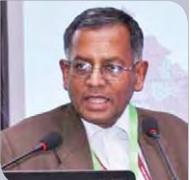 |
M Moni Deputy Director General ,National informatics Center, Government of India National animal disease reporting system and the other one is national database on fishing vessels. there are 200,000 fishing vessels which are operational and this database is being used by Navy, coast guards, marine police and is being used by all organisation associated with marine fishing |
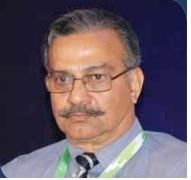 |
Lt General Rajesh Pant VSM, Commandant, Military College of telecommunication Engineering The three issues of concern for the future of information security professional – the first one is a convergence of the electronic warfare and cyber security. second aspect is related to embedded malware. And the third one is insider attack, or the man in the middle becoming a vehicle for attack. |
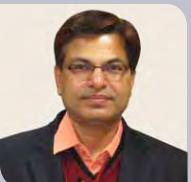 |
Dr Rajendra Kumar Joint secretary, DeitY, Government of India Now that we have multiple service providers, vendors, implementers, we are grappling with major security related issues. Different vendors may enter at different points of time and they may follow different procedures, which may be relevant at that point of time, but with passage of time they lose relevance. these procedures need to be changed and advanced. |
 |
Major General Ramesh Padhi Military Survey (MoGsGs) For tidal observation we have got 125-year old data. in most of the sea ports there is tidal observatory. these are online transmitted to a national data centre and integrated with the national GPs data centre so that the locations and data are located in real time and it is available to all user groups in real time. |
 |
Ravi Saxena, Additional Chief secretary, Department of science & technology, Government of Gujarat Cyberspace does not require a passport, it does not have a national boundary. the risk today is huge; the onsequences of any criminal activity can be quite significant and even disastrous. this is because the systems are being managed and run through software soloutions. these software solutions can be targetted remotely leading to lot of damage. |
 |
Rajesh Agarwal, Secretary IT, Government of Maharashtra Mostly we think of cyber security as something that is equivalent to fighting an external attack, but the truth is that the cyber security is being fought within the systems. today any database in the country is purchaseable, and that is the reality |
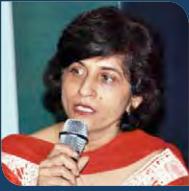 |
Renu Budhiraja, Sr Director & HOD state Data Centres, e-Governance, DeitY, Government of India When you talk about e-Governance scenario, the security has to be dealt end-to-end. it is a big challenge. the number of infected computers is enormous, 20 lakh plus. that is the challenge we need to look and address. there is also issue regarding implementation of security policies. |
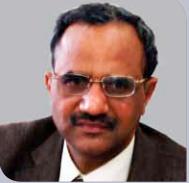 |
Ram Narain, Deputy Director General (security), Department of telecom, Ministry of Communication and information technology, Government of india We have one philosophy and principle. the philosophy was that let us build in security into the system rather than having add-on feature into it. |
 |
Ruchin Kumar Security Evangelist, SafeNet India Pvt Ltd We cannot say that we can eliminate threat or breaches. these things will always be there no matter how secure we become. But we have to see that the breach, which has been done in any organization cannot harm the organisation. |
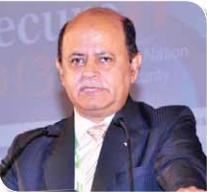 |
Lt General S P Kochhar, AVSM, SM, VSM, signal officer-in-Chief & senior Colonel Commandant i look at cyber security from three different angles – one is application security and the user, second is system security and the third is network security. if we have to have secured networks, it is essential we have end-to-end security. it is essential for each user to be fully educated. |
 |
S Suresh Kumar Joint secretary (Centre-state), Ministry of Home Affairs, Government of India Looking at a country like india, with different culture, different milieu, if anyone wants to do a project, he also has to look at in terms of what is going to be the evolving technologies, can you do it within three years in a very very very close fashion. Any optimism and ambition in that process is not called for |
 |
Subrata Das Industry Director, Public services,SAP India SAP tries to address community preparedness, volunteer management and critical area infrastructure management. |
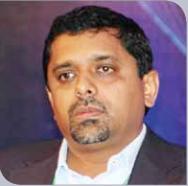 |
Sajan K Paul Director – Systems Engineering – India & SAARC, Juniper Networks We are doing device tagging, we are going beyond iP address. if the hacker is coming from website, we can actually inject (even with his privacy settings on) around 20 plus cookies into his browser and then track him from other areas. |
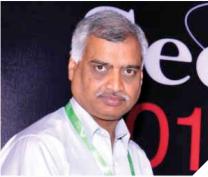 |
Satyendra Garg Inspector General of Police, Mizoram For the last three years, i had been managing Delhi traffic. the traffic police is prosecuting around 10,000 people every day and the act, which governs traffic enforcement is Motor Vehicle Act 1988 and i think it looks ridiculous that every time a traffic offender is caught he is caught as a ‘first offender’ because there is no digitization of facts. |
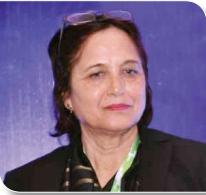 |
Vibha Agrawal, Vice President, Government Vertical,CA Technologies The statistic shows that insider attacks count for as much as 85 percent of computer internet related crime. Out of these majority of the insiders are priviledged users and a large number of attacks occur through them. Most of the attacks are due to weak authentication. Authentication in the security arena is a very big player. |
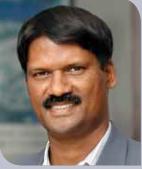 |
V L Kantha Rao President & CEO, National e-Governance Division (NeGD), DeitY, Government of India We have lot of infrastructure and applications in the e-governance domain. We have realised that the measures regarding the cyber security in the egovernance domain is piecemeal. |
 |
Vikas Yadav Senior sales Engineer, Websense We should have modern security for modern threats. threat comes from outside to inside, we should also analyse what is going from inside to outside. |
 |
BJ Shrinath Senior Director, CERTIN, DeitY, Government of India Awareness about cyber security can make a lot of difference and i think that’s what w all should be doing. technology in one hand gives you the freedom but on the other hand it immediately takes away your freedom that you will not realize. |
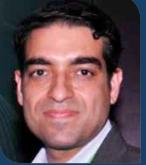 |
Puneet Ahuja Senior technical Consultant, Juniper Networks the security threat approach has to be twoleveled approach – one is the service provider level and second at the enterprise level. Data passing from one organization to another should be logged somewhere. |
Be a part of Elets Collaborative Initiatives. Join Us for Upcoming Events and explore business opportunities. Like us on Facebook , connect with us on LinkedIn and follow us on Twitter, Instagram.
"Exciting news! Elets technomedia is now on WhatsApp Channels Subscribe today by clicking the link and stay updated with the latest insights!" Click here!




